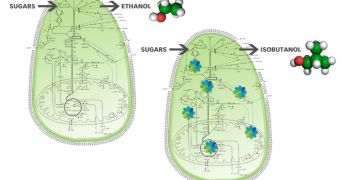As part of a $40 million grant to the Northwest Advanced Renewables Alliance (NARA), Gevo has received $5 million for the development of cost-effective biojet fuel, which is to address the urgent national need for a domestic biofuel alternative for U.S. commercial and military air fleets.
The NARA project, a consortium led by Washington State University (WSU), aims at coming up with a new, viable, aviation fuel industry using wood and wood waste in the Pacific Northwest, where forests cover almost half of the region.
The project also will focus on increasing the profitability of wood-based fuels through development of high-value, biobased co-products to replace petrochemicals that are used in products such as plastics.
"This is an opportunity to create thousands of new jobs and drive economic development in rural communities across America by building the framework for a competitively-priced, American-made biofuels industry," said U.S. Department of Agriculture Secretary Tom Vilsack.
"Public-private partnerships like these will drive our nation to develop a national biofuels economy that continues to help us grow and out-compete the rest of the world while moving our nation toward a clean energy economy," added Vilsack.
As part of the development process. Gevo will try to prove that woody biomass can be used as a cellulosic feedstock to create petroleum replacements such as isobutanol.
"Woody biomass has the potential to be a cost-effective and sustainable option for biorefineries. This project should help accelerate the commercial deployment of cellulosic biorefineries, grow the economy in rural America and contribute to home grown energy independence," said Patrick Gruber, Ph.D., CEO of Gevo.
Gevo previously announced its progress to airline engine testing using starch derived isobutanol to jet fuel. The company expects to receive full fuel certification by 2013 from the American Society for Testing and Materials (ASTM) for its biojet fuel.
Gevo alsorecently partnered with Texas-based South Hampton Resources for the construction of a demonstration plant to make biojet fuel and other hydrocarbons from its renewable isobutanol.

 14 DAY TRIAL //
14 DAY TRIAL //